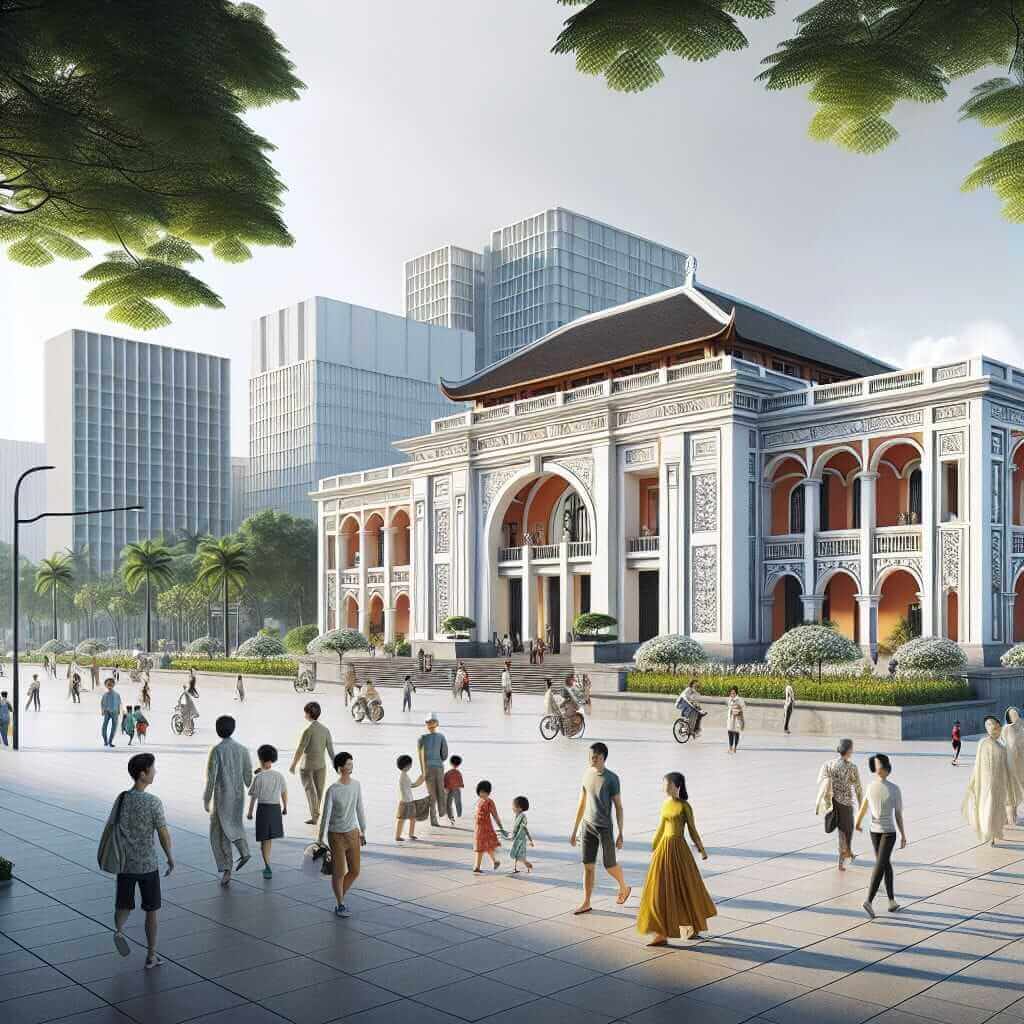Introduction
The IELTS Speaking test assesses your ability to communicate effectively in English on a variety of topics. One common theme is leisure activities, and you might find yourself faced with a question like: “Do Vietnamese people generally like visiting museums?”. This seemingly simple question can actually be a great opportunity to demonstrate your vocabulary and ability to discuss cultural trends.
Understanding the Question’s Nuances
While straightforward, this question requires you to go beyond a simple “yes” or “no”. Examiners look for:
- Generalizations: Can you accurately describe trends in a population group?
- Supporting Evidence: Do you have examples or reasons to justify your statements?
- Vocabulary: Can you use diverse and relevant vocabulary related to museums, culture, and leisure?
Addressing the Topic of Museums in Vietnam
Here’s how to approach this IELTS Speaking topic effectively:
1. Acknowledge the Diversity of Opinions:
Start by acknowledging that not everyone within a large group shares the same interests. You can say:
“Well, it’s hard to generalize about an entire population, as people in Vietnam have diverse interests. However, I can say…”
2. Discuss General Trends:
Next, offer your observations about museum-going habits in Vietnam. You could say:
“In my experience, museums haven’t traditionally been the most popular leisure activity in Vietnam. This might be because…”
3. Provide Reasons and Examples:
Support your statements with concrete reasons and examples. For instance:
“…Historically, museums in Vietnam often focused on history and politics, which may not appeal to everyone. However, there’s been a recent surge in more interactive and modern museums, like the Museum of Ethnology in Hanoi, which are attracting a wider audience, especially younger generations.”
4. Use Relevant Vocabulary:
Incorporate diverse vocabulary related to:
- Types of Museums: art museums, history museums, science museums, ethnographic museums
- Museum Experiences: exhibitions, artifacts, interactive displays, guided tours
- Reasons for Visiting: educational value, cultural immersion, historical appreciation

Sample IELTS Speaking Response
Here’s a possible response that combines these elements:
Examiner: Do Vietnamese people generally like visiting museums?
Candidate: It’s difficult to make a blanket statement about an entire nation, as people’s interests vary greatly. However, I’d say that museums haven’t always been the top leisure choice in Vietnam. This could be because many older museums tend to focus on historical events or political figures, which may not resonate with everyone. That being said, there’s been a noticeable shift in recent years. Modern museums, like the Museum of Ethnology in Hanoi or the War Remnants Museum in Ho Chi Minh City, offer immersive and interactive experiences. These museums showcase Vietnamese culture, art, and history in engaging ways, attracting both locals and tourists, especially younger generations who are curious about the past and present.
Tips for Success
- Be Prepared: Familiarize yourself with common IELTS themes like leisure, culture, and education.
- Practice Speaking: Record yourself answering sample IELTS Speaking questions to improve fluency.
- Expand Your Vocabulary: Learn synonyms and related terms for common topics.
- Stay Calm and Confident: Speak clearly, maintain eye contact, and don’t be afraid to elaborate on your answers.
By following these tips and structuring your response effectively, you can confidently tackle any IELTS Speaking question about museums in Vietnam or any other cultural topic.